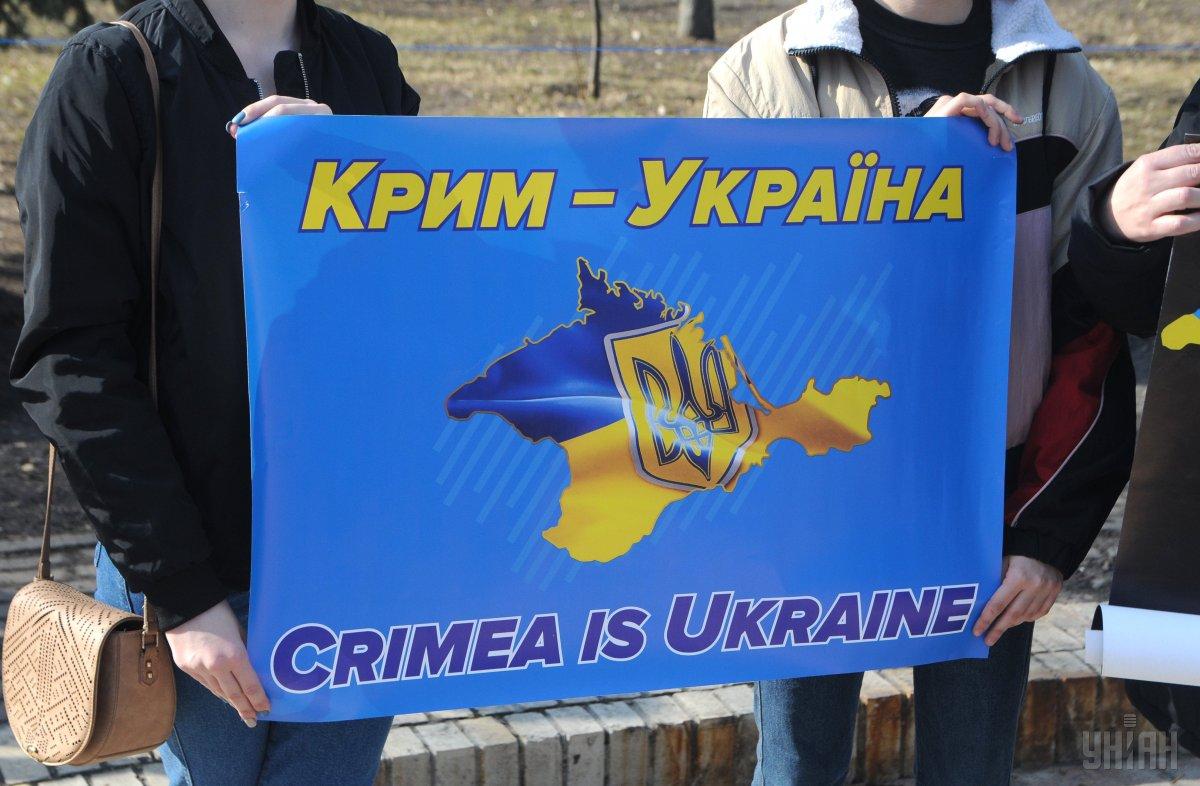
The G7 foreign ministers of Canada, France, Germany, Italy, Japan, the United Kingdom, and the United States of America and the High Representative of the European Union have welcomed Ukraine's initiative on the Crimean Platform.
"We welcome in principle Ukraine's initiative to establish an International Crimean Platform to consolidate the international community's efforts on Crimea," the G7 foreign ministers said in a statement on Ukraine, as reported on the UK's government website on March 18, 2021.
The diplomats also said they are united in condemnation of Russia's continued actions to undermine Ukraine's sovereignty, territorial integrity and independence.
"Today, seven years after Russia's illegitimate and illegal annexation of the Autonomous Republic of Crimea and the City of Sevastopol, we reaffirm our unwavering support for and commitment to the independence, sovereignty and territorial integrity of Ukraine within its internationally recognised borders," the statement said.
It is noted the UN Charter, the Helsinki Final Act and the Paris Charter clearly state the fundamental principles of respect for the territorial integrity of any State and the prohibition of any use of force to change borders.
"By its use of force against the territorial integrity of Ukraine, Russia has clearly violated international law and contravened these principles," the statement said.
"We unequivocally denounce Russia's temporary occupation of the Autonomous Republic of Crimea and the City of Sevastopol. Russia's attempts to legitimise it are not, and will not, be recognised. We condemn Russia's violations of human rights on the peninsula, particularly of Crimean Tatars. We call on Russia to respect its international obligations, allow access to international monitors, and to immediately release all those who are unjustly detained," the G7 foreign ministers said.
Read alsoUkraine to invite Japan to join Crimean PlatformRussian occupation of Crimea
- Russia annexed Ukraine's Crimea in March 2014 after its troops had occupied the peninsula. An illegal referendum was held amid the aggressive takeover on the issue of the peninsula's accession to Russia. De-facto Crimean authorities claimed that 96.77% of the Crimean population had allegedly supported the move.
- On March 18, 2014, the so-called agreement on the accession of Crimea and the city of Sevastopol to the Russian Federation was signed off in the Kremlin.
- Western powers never recognized the Crimea annexation attempt and imposed sanctions on Russia over aggression against Ukraine.
- Ukraine's parliament voted to designate February 20, 2014, as the official date for the start of the temporary occupation of Crimea.
Crimean Platform to end Russian occupation of Crimea
- On September 23, 2020, Ukrainian President Volodymyr Zelensky, who participated in the general debate of the 75th session of the UN General Assembly, called on partners to join an international platform for the end of the Russian occupation of Crimea.
- In December 2020, Zelensky announced that the creation of the Crimean Platform had already been backed by powers on both sides of the Atlantic.
- The platform will operate at several levels. The first, the highest one, is the political level, which will involve heads of state and government. The second level is that of top diplomats and defense chiefs, the third is the inter-parliamentary level, and the fourth will involve non-governmental experts. An expert network will be created to enhance the effectiveness of government action, as well as engage additional intellectual resources in the platform's work.
- On February 26, 2021, Zelensky signed a decree on measures to end the occupation of Crimea and reintegrate the temporarily occupied territory of the Autonomous Republic of Crimea and the city of Sevastopol. An organizing committee for preparations for the Crimean Platform constituent summit was set up under the decree.

